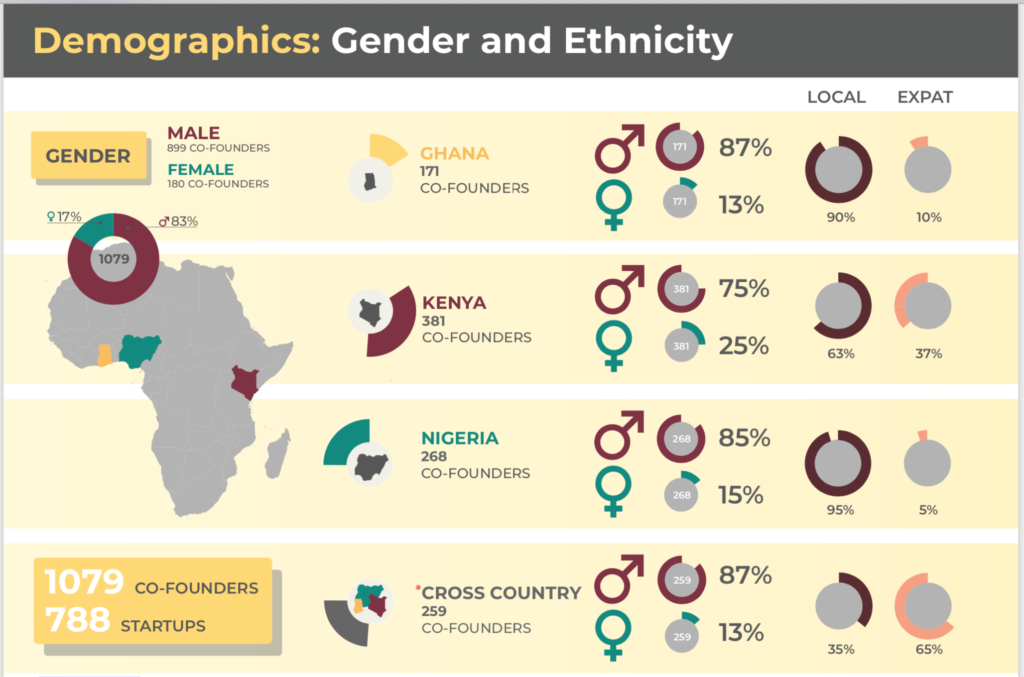How much do employees of technology companies earn in Africa? The consensus seems to be that these employees are well compensated, but there has been little data to back this up. Until now.
Thanks to a study conducted by Timon Capital, an investment firm active in Sub-Saharan Africa, and in collaboration with Briter Bridges, a data-driven research firm focused on emerging markets, we are beginning to have real data to help our understanding of compensation across the continent.
The study was conducted across four of Africa’s most vibrant technology ecosystems: Nigeria, Kenya, Ghana, and South Africa. 48 companies participated. Because many of the ecosystems are young, the data skews towards early-stage companies at the seed stage rather than companies that have raised large amounts of capital.
It’s an interesting dataset helpful to entrepreneurs, people employed at startups, and investors – and raises lots of interesting questions on culture, fairness, and opportunities as the ecosystems evolve.
You can download a full copy of the survey to explore the data. While details vary across countries, here are some of the interesting general takeaways from the companies surveyed:
- Senior engineers are in the middle of the compensation spectrum. They often receive double the salary of junior engineers. It’s an interesting finding, especially in light of the recent change in Andela’s workforce. Median compensation for senior engineers is $22,500 and median compensation for junior engineers is $10,000.
- CEOs take home salaries that are substantially larger than other employees, but other C-level positions are roughly similar to senior engineers.
- Kenya and South Africa generally have higher compensation across the board than Nigeria and Ghana, especially for executives.
- 25% of CEOs earn compensation above $60,000 annually, six times the median compensation for junior engineers.
- The average startup founder holds a Bachelor’s degree. Nearly 33% of founders obtained a university degree outside of Africa.
- Amongst 1,079 founders of 788 startups surveyed, only 20% are female. Kenya has the least gender disparity with 25% female founders. More needs to be done to ensure women are able to create or work on teams that create solutions in these sectors. And when they come up with their ideas, venture capitalists and investors should trust in their managerial abilities to raise structures capable of achieving success. There are already thriving examples of such women around the continent and where the appropriate conditions are created, more are sure to arise.
“We wanted data around compensation because it’s a useful tool for ourselves—and also useful to the entire ecosystem,” says Chris Muscarella, partner at Timon Capital, on their motivation for undertaking this survey.
He observes that “salaries are always a huge line item in a technology company’s budget. So broad and accurate compensation information is helpful to investors trying to model companies’ capital needs, founders and hiring managers trying to put together good offers for candidates, and prospective employees wanting to have a sense of whether they’re being offered a fair deal.”

As to whether investors have a role in closing the compensation gap, Nicholas Katsaounis, partner at Timon Capital, says the market remains the mechanism by which compensation is set, without a direct role for investors.
However, “there’s a definite correlation between founders who are magnets for talent and able to retain that talent over time. Compensation is an important part of retaining great talent, but not the only part.”
Due to obvious sensitivities when it comes to disclosing financial data, companies are not easily forthcoming with information about their compensation structure, according to Lisa With, Head of Research at Briter Bridges.
“Most respondents were at their pre-series A funding stage. When companies receive funding, there is an understandable increase in sensitivity about financial details.”
The lack of data and transparency represents an obstacle to how deeply we can understand compensation in Africa. Yet, “it is not possible to compel company leaders to respond due to the sensitive nature of questions about salaries. Some companies, for fear of being targeted, declined to participate in our study.” With said.
With greater stability in the startup space in Africa, it is to be hoped that we will learn more about improvements in compensation between levels of employees.
For now, insights from this study give us an idea of the present landscape.





















